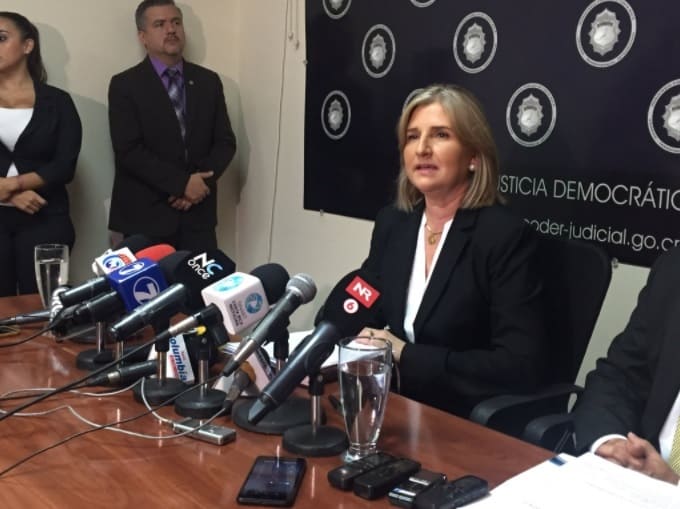The Costa Rican Prosecutor’s Office requested six months of preventive detention for the seven people who have now been arrested in connection with the Banco de Costa Rica-Chinese cement case popularly known as the Cementazo.
The request, confirmed by the Prosecutor’s Office Saturday morning – the office indicated on Twitter that the hearing had been in progress since 1 am – followed the arrest on Friday of businessman Juan Carlos Bolaños and six senior executives from the Banco de Costa Rica, one of Costa Rica’s public banks.
Bolaños is the key figure in the unfolding scandal, which centers on alleged influence peddling involving officials in the executive, judicial and legislative branches of government so Bolaños could obtain $30 million in loans from bank to import Chinese cement.
His arrest took place in Atenas, Alajuela at approximately 3:30 am Friday morning. The daily La Nación reported that authorities began following him Thursday evening with the intent to arrest him at 6 am at his home in Escazú, but moved up the arrest because of “movements that caught our attention” as the businessman visited various locations around San José during that night and into the wee hours of the morning.
When Bolaños stopped at the offices of Grupo JCB in La Uruca and loaded boxes into his car, authorities decided to take him into custody earlier than planned, the daily reported.
Hours later, six Banco de Costa Rica executives – including its suspended manager, Mario Barrenechea – were arrested.
The last names of the additional five bank executives arrested later Friday, according to statement from the Prosecutors Office, are Corrales Barboza, Víquez Lizano and Acuña Alvarado, Ramírez Rodríguez and Barrantes Campos.
Investigators are examining alleged irregularities in the bank’s unsecured loans to Bolaños.
Costa Rica’s Chief Prosecutor, Emilia Navas, said at a news conference that several other suspects are being investigated, suggesting the possibility of further arrests.
Members of the government are said to be implicated in the probe. The Economy Ministry modified its rules on cement imports following seven meetings Bolaños had with representatives of the Executive Branch.
Asked whether President Luis Guillermo Solís was among those being investigated, Navas declined to answer.
Solís, who has been recovering from prostate surgery, posted a video on Facebook on Friday expressing his support for the ongoing investigation.
“I share the indignation of the citizenry” over the case, he said. “The people of Costa Rica deserve to know the whole truth.”
https://www.facebook.com/luisguillermosolisr/videos/1866853800010797/
Bolaños’ lawyer, Juan Marco Rivero, called Friday’s arrests “a media show,” explaining that his client had offered to cooperate fully with prosecutors.
The scandal is clouding Costa Rica’s political landscape, with lawmakers, prosecutors and a Supreme Court judge suspected of supporting Bolanos all caught up in the matter.
President Solís called for the resignation of all members of the Banco de Costa Rica’s Board of Directors as the scandal grew, and authorities suspended Navas’ predecessor, Jorge Chavarría, and judge Celso Gamboa in order to investigate the judicial authorities’ alleged involvement in helping Bolaños.
Costa Rica’s cement scandal isn’t over, but public trust is unquestionably damaged






